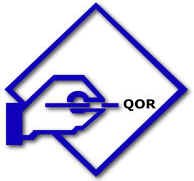Calgary, Canada
Black gold is a resource curse. These words are all too familiar in the minds of many African citizens today. The recent flurry of activity and interest in Somali oil and gas prospects have caused many in the world to become newly interested in Somalia. I too myself have sought to dig deeper and understand the possible idea of black gold discovery in the midst of the ferocious political quagmire that is Somalia today not only because it is my area of training but also as a Somali nationalist. The discovery of oil and gas in Somalia could very well cause significant positive in roads to a lasting solution of the two decades old crisis. Or it can do the opposite and follow the paths evident in that of Nigeria.
My recent and ongoing public relations effort to spread the word and facts about Somali oil and gas is in some sorts to clear the air. When news broke about the spudding of the Shabeel wells in Puntland earlier this year, I found ordinary Somalis ecstatic at this development and calling for more exploration and production in the country. But at what costs and for what result? The reality of Somalia is that it is loosely ruled by clan fiefdoms and a land in which there is hardly any legal infrastructure to speak of. The exploration for petroleum is an activity that has much sensitivity. It involves national laws, it requires environmental and sovereignty considerations, it is something that is undertaken over generations.
Nevertheless I have heard the argument that we should let the foreign companies explore for petroleum first and if they find something we’ll deal with the profit sharing after. This argument struck me as an irresponsible way to approach exploration. Yes, petroleum exploration requires massive amounts of capital expenditure for which no profit might even be gained. This is the risk undertaken by the foreign company. But did you know under the Somali National Oil Law of 2007, which by the way was written by a consortium of Canadian lawyers and Kuwait on behalf of Somalia, vastly underestimates the predicted reserves and allots some of the smallest royalties and profit sharing in the petroleum world. I do however agree that companies should be allowed to enter Somalia and explore for petroleum, but only after an adequate national oil law that gives a fair share to the country and protects our national sovereignty and environment is instituted.
Oil Corruption and Unaccountability
It is no secret the natural resources of Somalia have been eyed by the international community for years and many attempts have and will continue to surface of foreign oil companies seeking to exploit this resource illegally. There are some very good reasons why we need to inform ourselves more deeply about oil and gas in Somalia. I bring to attention the oil contract signed in 2005 by the Puntland government with Range Resources whereby the Australian company (which isn’t even an oil company it works in mining) was sold ALL mineral rights in Puntland covering an area of 212,000 sq.km.
It was the first time a regional or federal government has sold off all of its petroleum rights to a single company in the world. Blatant and utter corruption on the levels of this concoction should be exposed more and more to the general Somali public. The few dollars the signatories received as a signing bonus for this unethical contract was in essence a slap in the face to what these companies are used to paying as bonuses. Nevertheless, it is apparent that the current Somali political climate is unsuited to effectively manage an oil industry. This raises the question of whether or not the government and Somali people at large should fully thrust themselves into this new found “opportunity”. There is no clear answer to this and I have heard many different opinions however, one thing does remain pertinent and compulsory upon the concerned actors in Somali oil. That is we must as a government, civil society and concerned public be fully engaged and involved in keeping a critique of the foreign players in Somali oil exploration.
Is Somalia a future oil giant?
In my YouTube video of an overview of Somali Oil and Gas, I provided estimates of future possible oil reserves in Somalia in the 110 billion barrels of oil range, effectively giving a population of only 10 million control of the world’s 5th largest oil reserves; more than UAE and Kuwait. With numbers on the proportions of billions of barrels, Somali oil and gas is an enormous responsibility and opportunity on the shoulders of its people. Only the Somalis themselves will be able to determine whether this resource is a curse or a blessing by either choosing to be informed and demanding accountability or to distance themselves and hope that oil wealth is redistributed to the people. Oil and gas is not a joke, it is the most coveted resource on this planet and in some instances worth more than life a la Iraq and Libya. Do we as Somalis, then believe that possessing such a substantial resource will be dealt with in a fair ethical manner preserving our national sovereignty, economy and most importantly environment?
I strongly believe that economic agreements will end our fractious wars and disputes and oil can be at the forefront of this. In Armo, Puntland (near where the Shabeel Wells are being drilled) tribes put aside their territorial disputes and clashes to engage in economic agreements so that oil exploration can operate in the area safely. These examples will hopefully be the template for Somalis as the country moves into oil exploration. Finally, it is our duty as concerned Somalis to dig deeper and uncover the facts in an industry where politics are dirtier than the oil that comes out of the ground.
Contact: abdulmusse@gmail.com







































This is a brilliant, well thought out and balanced article. mashaa Allah
I Agree with you, dear writer of all what you wrote.
this is a breath taking business ( winning the hearts and minds of your nations public) however, we shouldn’t give up informing our nation’s updates to your points of thoughts (above), and at the end of the day we will feel winners….
A.M.Aden
Garowe.